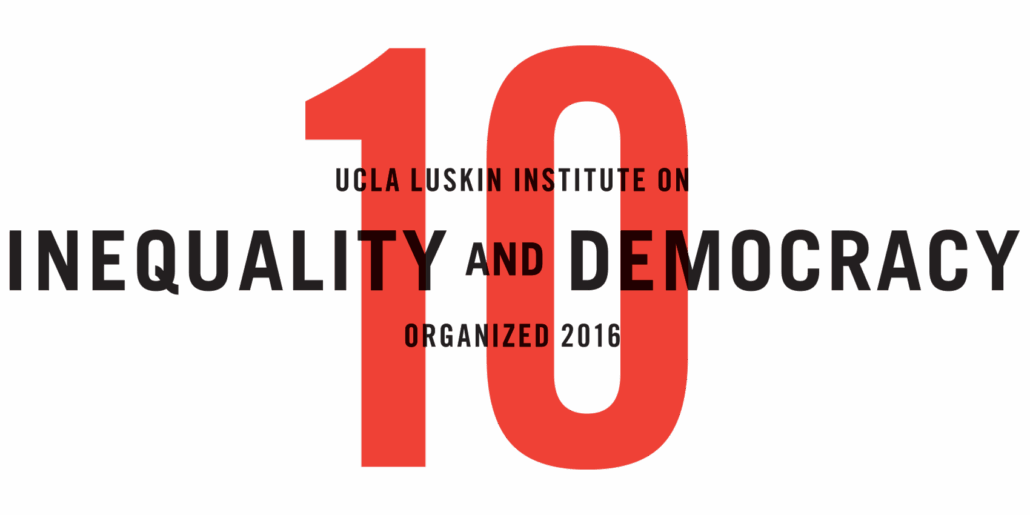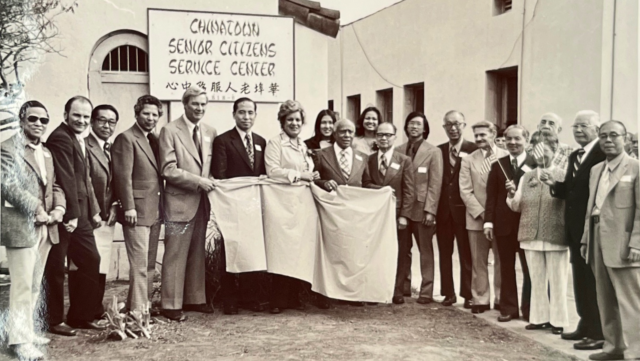Councilman Gilbert Lindsay and Chinatown community leaders stand in front of the opening of the Chinatown Senior Citizens Service Center. Image credit: Los Angeles City Archives records of Council District 09-Gilbert Lindsay
Contesting Chinatown: Community Ownership in Urban Growth Politics
Victoria Tran, Sociology, UCLA
Ideas and Organizing Doctoral Awardee 2022-23
While redevelopment and gentrification have been understood to be primarily driven by government officials and real estate developers, community groups and residents are active players in urban politics over neighborhood revitalization and redevelopment. Within systems of urban governance that promote community-engaged redevelopment and participatory governance, claims of community ownership and the performance of community gives local actors legitimacy to define who governs, how they come to govern, and who speaks for the urban poor. While redevelopment projects are open to extensive public engagement processes through stakeholder task forces and public meetings, the practice of community engagement often reduces the community to a bureaucratic checkbox. The “community” then becomes a tool to promote a neighborhood while also creating a boundary for who does and does not belong, whose needs should be prioritized, and who has the right to speak on behalf of the neighborhood.
Victoria Tran studies competing community organizing in Los Angeles’ Chinatown from 1975-2005 to analyze how the power to define the neighborhood and its priorities was contested by groups with different social, economic, and cultural ties to the space and competing perceptions of their legitimacy to speak for the neighborhood. These contestations over community ownership shape what groups the government legitimized as community representatives, how projects were prioritized and funded, and who benefited from housing and redevelopment projects. This project uses a historical case study of a Los Angeles’ ethnic enclave to understand the opportunities and limitations of community engagement in local urban politics and provide important context for current urban studies questions around neighborhood authenticity, community ownership, and displacement in minority and immigrant communities.




